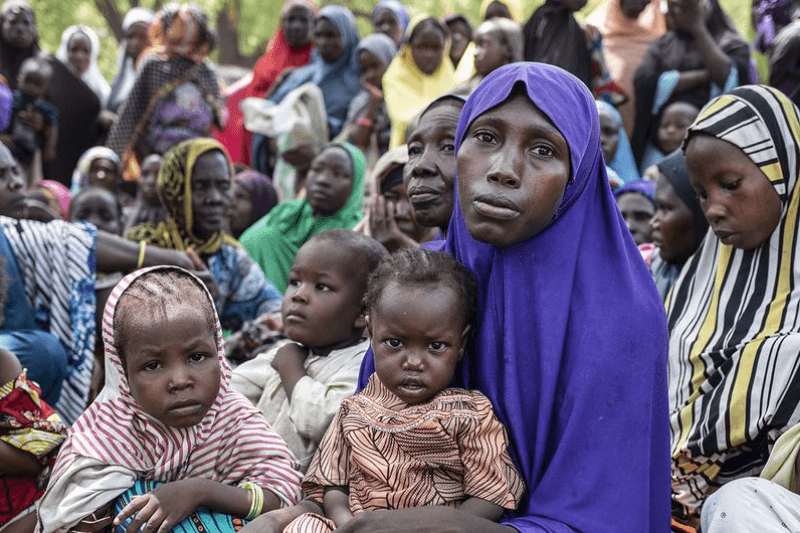The Boko Haram conflict in northeastern Nigeria has led to worsening hunger and malnutrition among internally displaced people, according to humanitarian workers and locals in the area. Aid groups like the World Food Program are providing food and other essentials to some displaced individuals, but many others are still unable to access aid, particularly those in hot spots and hard-to-reach areas.
Boko Haram, a homegrown jihadi group in Nigeria, began its insurgency in 2009 with the aim of establishing Islamic Sharia law in the country. As a result of the extremist violence, at least 35,000 people have been killed, and 2.1 million people have been displaced, according to U.N. agencies in Nigeria. Even a decade following the abduction of the Chibok girls, Boko Haram remains a danger to the people of Borno state. Since 2020, 1.8 million civilians have been affected by the violent activities of the insurgent group and this threat has extended to neighbouring Cameroon, Chad, and Niger in the Lake Chad region according to the ACLED data.
Cindy McCain, the Executive Director of the World Food Program, visited Damasak, a community near the conflict zone, during her trip to Nigeria. While there, she met with humanitarian workers and locals who are receiving assistance from the U.N. food agency and expressed her concerns about the difficult choices she has to make in distributing food.
“How do I take food from the hungry and give it to the starving? Because that’s the choices I have to make now,” said McCain. McCain also held meetings with government leaders in Borno and reassured them of the U.N. food agency’s ongoing support.
Keep Reading
Not just Boko Haram causing food insecurity but also other causes. According to the report by UNICEF in 2023 that nearly 25 million Nigerians were at high risk of food. Also the humanitarian situation in Nigeria’s northeast is becoming increasingly concerning following the flooding, as thousands are being displaced and there is a significant rise in prices, posing a threat to food security. Up to 1 million people have been affected by the situation in Borno state, as stated by the governor on September 11th.

